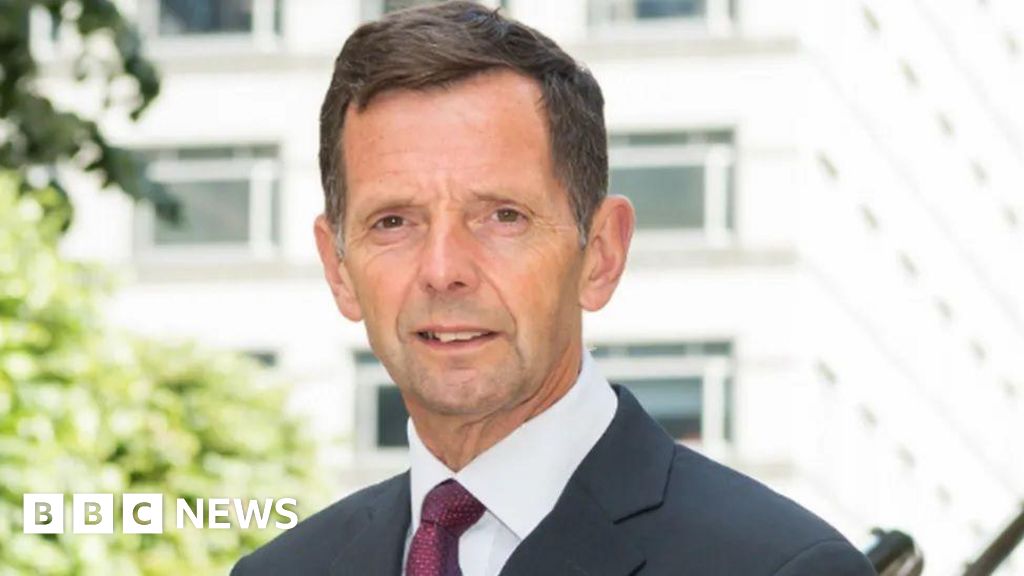African Ministers adopt landmark continental AI strategy to drive development inclusive growth
African ICT and Communications Ministers unanimously endorsed landmark Continental Artificial Intelligence (AI) Strategy and African Digital Compact to accelerate Africa’s digital transformation by unlocking the potential of the new digital technologies. More than 130 African ministers and experts virtually convened from June 11 to 13, 2024 for the 2nd Extraordinary session of the Specialized Technical […] The post African Ministers adopt landmark continental AI strategy to drive development inclusive growth first appeared on KBC.

African ICT and Communications Ministers unanimously endorsed landmark Continental Artificial Intelligence (AI) Strategy and African Digital Compact to accelerate Africa’s digital transformation by unlocking the potential of the new digital technologies.
More than 130 African ministers and experts virtually convened from June 11 to 13, 2024 for the 2nd Extraordinary session of the Specialized Technical Committee on Communication and ICT to ignite digital transformation across the continent amidst rapid evolutions in the sector fuelled by artificial intelligence (AI) technology and applications.
The Continental AI Strategy provides guidance to African countries to harness artificial intelligence to meet Africa’s development aspirations and the well-being of its people, while promoting ethical use, minimising potential risks, and leveraging opportunities.
Identifying key priorities and actions to ensure that Africa fully benefits from the huge opportunities AI offers, the strategy calls for Africa-owned, people-centered, development-oriented, and inclusive approach to accelerate African countries’ AI capabilities in infrastructure, talent, datasets, innovation, and partnerships while also ensuring adequate safeguards and protection from threats.
At the opening of the ministerial session, African Union Commissioner for Infrastructure and Energy Dr. Amani Abou-Zeid stated that Africa is resolved to harness new technologies for the well-being of Africans and to develop a Continent-wide approach and a harmonised journey for this revolutionary technology to tackle Africa’s complex and most pressing challenges while minimizing the risks. “For us Africans, Artificial Intelligence presents tremendous opportunities. It is a driving force for positive transformational positive change as well as economic growth and social progress,” said Dr. Abou-Zeid.
Commissioner Abou-Zeid commended the endorsement of the strategy as a timely and strategic move while emphasizing “Adapting AI to African realities is critical. AI systems should be able to reflect our diversity, languages, culture, history, and geographical contexts. As we aim to create an inclusive AI ecosystem and a competitive African AI market that is adapted to our realities and meets our ambitions, we believe examining and approving this strategy will provide a common vision and path to accelerate responsible AI innovation and adoption in Africa”.
The Strategy sets the roadmap for African countries to harness the potential of AI to achieve developmental aspirations to education and skills, health, agriculture, infrastructure, peace and security and good governance by developing human capital, strengthening research and innovation ecosystems, and building an AI-ready institutional and regulatory environment to ensure AI works for African people. By investing in African youth, innovators, computer scientists, data experts, and AI researchers, the framework paves the way for Africa’s success in the global AI arena.
The Minister of Information, Communications, Science Technology, and Innovation of the Kingdom of Lesotho, and Chair of the Bureau of the technical committee Nthati Moorsi emphasised the huge opportunities that stem from the adoption of AI-enabled systems to promote homegrown solutions to stimulate economic growth and sustainable development towards achieving the priorities outlined in the AU Agenda 2063 and the UN Sustainable Development Goals.
The ministerial committee also endorsed the African Digital Compact, which is Africa’s common vision and one voice that charts Africa’s digital future and harnesses the transformative potential of digital technologies to foster sustainable development, economic growth, and societal well-being throughout Africa.
According to Commissioner Abou-Zeid, the Compact is Africa’s strategic commitment to utilizing digital transformation as a catalyst for inclusive progress and sustainable development in Africa. Further lauding the Compact as remarkable initiative that will position Africa at the forefront of the global digital economy, not just as a consumer but also as innovator and producer. She added that creating strong pool of talents, and enhancing public private partnerships are deemed critical to promote homegrown digital solutions.
During the discussions, the African ministers highlighted the importance of propelling Africa’s role in shaping global digital governance and insisted on the importance of capacity building and knowledge transfer to empower Africa’s youth, private sector and institutions to ensure their participation in the digital economy through initiatives focused on enabling ecosystems, digital education, skills development, and job reassignment.
Minister Moorosi further accentuated that unique challenges and contexts of Africa must be taken into consideration in the global discourse around digital technologies. “Our position must advocate for our capability to develop our own electronic technologies and equitable access to these critical resources. Additionally, we must ensure that when the global community addresses the artificial intelligence alignment problem, the unique needs and contexts of Africa are considered” underscored Moorosi.
At the closing of the Ministerial meeting the ministers mandated the African Union to organize a level Continental African Artificial Intelligence Summit to foster collaboration, knowledge exchange, and strategic planning among stakeholders across the continent.
Both initiatives were developed through consultations with a wide array of stakeholders and constitute Africa’s contribution to the Global Digital Compact and the United Nations Summit of the Future in September 2024. They are expected to be submitted to the African Union Executive Council in July 2024, for consideration and adoption.
It’s worth mentioning that the Continental AI Strategy and the African Digital Compact are anchored in the African Union’s Digital Transformation Strategy (2020-2030) and Agenda 2063 and build on other continental digital policies, strategies, and frameworks such as the data policy, personal data protection cybersecurity, child protection frameworks targeted at fostering digital technologies in all sectors and realizing Africa’s long-term development aspirations.
The post African Ministers adopt landmark continental AI strategy to drive development inclusive growth first appeared on KBC.
What's Your Reaction?































/cdn.vox-cdn.com/uploads/chorus_asset/file/25517480/2023_Amazon_Fire_HD_10_Lifestyle_Press_Image_2.jpg)
/cdn.vox-cdn.com/uploads/chorus_asset/file/24110035/226347_Kindle_SVasani_0004.jpg)













































![Netflix Horizon Zero Dawn TV Show Reportedly In Trouble [Update]](https://i.kinja-img.com/image/upload/c_fill,h_675,pg_1,q_80,w_1200/cc9a42c0341c691ff31e3f12daeddc34.jpg)





































